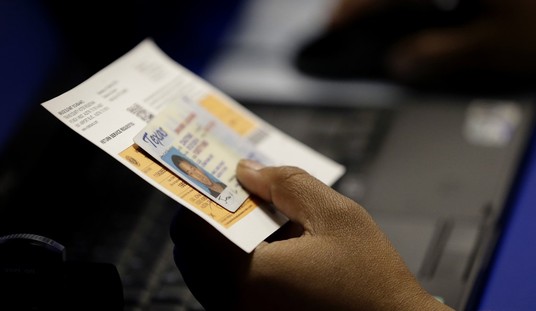The golden rule for House members when contemplating immigration (or any other issue for that matter) is that bad legislation is worse than the status quo. And until we are in the position to pass good legislation, we should not be scoring points for the other team; we should beat them over the head with their bad legislation.
Generally speaking, House Republicans are on better footing than they were at the beginning of this debate. Several months ago, very few members understood the policy and political dangers of amnesty and many of them were peddling Democrat talking points about the status quo. Many others refused to issue any criticism of the Rubio/Schumer bill. Now most of them wouldn’t be caught dead supporting the bill.
Additionally, they have gone from lopping up the Jeb Bush political argument to understanding that the broader implications of supporting amnesty portend electoral disaster for the GOP – both in the long run and the near term. In fact, according to a new poll of Hispanic voters, Marco Rubio wouldn’t perform better with Latinos than Romney did last year. [Ted Cruz is actually rated most favorably from potential GOP candidates.] Undoubtedly, he would lose many white working class voters who would stay home when presented with such a muddled distinction between the two parties.
The real threat in the House is the trap of focusing on citizenship. We’re already seeing too many of them focus on this shiny object. Over the weekend, Judiciary Committee Chairman Bob Goodlatte, who has generally done good work on this issue, said that while he opposes a path to citizenship, he supports a pathway to legalization.
Going forward, we need to be clear that legalization is amnesty. Citizenship is just a worse form of amnesty. Moreover, we all know that the issue of citizenship is a red herring. Once the legal status is granted, there is no way we will withhold the pathway to citizenship for 10-15 years, let alone indefinitely. That is why it is so crucial for members to clearly articulate their opposition to any form of legalization as long as we have a president who refuses to enforce the laws and until we eliminate the magnets for future waves, such as welfare and birthright citizenship.
It’s a bit disconcerting that some House Republicans seem to only be concerned with citizenship but not a legalization-first approach, which would inevitably lead to citizenship anyway. To make matters worse, there is an Ag guestworker bill percolating through the committee, which has a provision granting amnesty to those already here illegally working in Ag. Committee members must make it clear that they will not support this bill on the floor under this administration. Once we have amnesty for Ag workers it will be very difficult to hold it back for other people. Why are they any better?
The messaging is quite simple: no discussion of legal status for anyone before the lawlessness ends; no changing the laws until we enforce the existing laws. Remember, any bill that increases the future flow will now precipitate chain migration of gay couples, pursuant to Anthony Kennedy’s manifesto. If Republicans get caught up with the shiny object of citizenship, and agree to some other expansionist amnesty bill sans the citizenship, we will exacerbate the status quo.
Instead of going to conference with the Senate, Goodlatte should take up the Senate bill in committee and officially vote it down. He should also make it clear to leadership that swapping out citizenship for plain amnesty is also unacceptable. At a time when the amnesty-peddlers are laying low, House Republicans should bring them out of the shadows and hit them over the head with their handywork.
Over the next few weeks, I’ll be forming a master list of House Republicans to see who is committed to blocking amnesty and who wants to focus on shiny objects. You can do the same by calling your Republican representative and asking them if they plan to support any form of amnesty or any conference that will lead to amnesty.












Join the conversation as a VIP Member